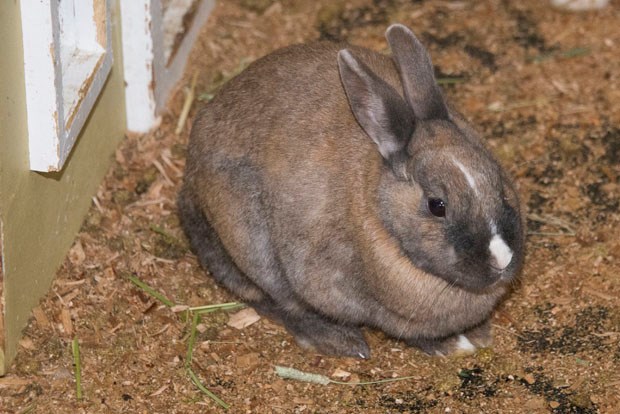The B.C. government announced Monday afternoon that the first batch of vaccines to protect pet rabbits from a deadly disease has arrived from Europe.
The vaccines are now being distributed to 50 veterinary clinics across the province that ordered it to combat rabbit hemorrhagic disease (RHD).
However, it’s all too late for the no-kill Richmond-based Regional Animal Protection Society (RAPS), which was told by the Ministry of Agriculture last week to euthanize 66 rabbits last week after a suspected outbreak of the highly contagious, airborne disease at its No. 5 Road shelter.
RAPS’ CEO Eyal Lichtmann told the Richmond News last week that a hastily-arranged quarantine around the rabbits wasn’t enough to stop the disease – which is not communicable to other animals or humans – from spreading.
At the time, Lichtmann spoke of how hard it was for his staff to deal with, especially given RAPS’ no-kill policy.
Vaccinations for RHD were ordered by RAPS, but were “coming in too late,” added Lichtmann.
RAPS has been assured by the Ministry of Agriculture and the BC SPCA that all the precautions, which have included biosecurity measures and the quarantining our rabbits and the facility, were in keeping with best protocols.
To meet the remaining demand, the government said a second batch of the vaccine is expected in early May.
The Ministry of Agriculture ordered the vaccine from a manufacturer in France in March, following the first-ever B.C. diagnosis of the disease on Vancouver Island.
The vaccine that provides the best protection is available only through one manufacturer in France.
The first shipment included all the vaccines the manufacturer had available. This included 1,090 individual doses of the vaccine and 42 multi-dose vials that are being distributed to vet clinics that ordered it following cases of the disease in their area.
It is also being distributed to clinics in other parts of B.C. that have clients who are concerned about protecting their rabbits from the quickly spreading disease.
RHD is an extremely infectious and lethal disease that causes internal bleeding and organ damage in rabbits.
Most affected rabbits die suddenly, but can show signs of listlessness, lack of co-ordination, changes in behaviour, or trouble breathing before death.
There is often bleeding from the nose at the time of death. Once infected, signs of illness occur quickly, usually within one to nine days.
Pet owners should monitor their rabbits daily for signs of illness, and contact their vet immediately with any concerns.
While there is no threat to humans or other domestic animals, in addition to rabbit owners taking precautions, the public is advised not to move domestic rabbits into the wild at any time.
As well, rabbit owners should take precautions when disposing of any rabbit remains.
Rabbit owners who want more information about how to keep their pets safe, can consult with their vet or review an SPCA factsheet online at SPCA.bc.ca/news.
Quick facts:
* To date, tests on 27 feral and domestic rabbits have been completed
* 20 of the 27 were feral rabbits. Seven were domestic rabbits.
* 19 of the 20 feral rabbits tested positive. Two of the seven domestic rabbits tested positive.
* Rabbits that tested positive were received from the Comox, Courtenay, Delta, Nanaimo, Parksville and Richmond areas.
* Rabbits that tested negative were received from Abbotsford, Maple Ridge, Mission, Surrey, Nanaimo, Parksville and Victoria.
* Feral rabbits submitted from regions where the disease has been confirmed are no longer being tested.
* Testing is underway on five additional rabbits that have been submitted for testing.



